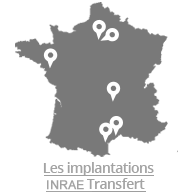
European projects successes

European projects managed by INRA Transfert in 2017
-
NEFERTITI Open or Close
 NEFERTITI: Networking European Farms to Enhance Cross Fertilisation and Innovation Uptake through Demonstration
NEFERTITI: Networking European Farms to Enhance Cross Fertilisation and Innovation Uptake through DemonstrationObjectives
NEFERTITI is a unique project that establishes 10 thematic networks bringing together regional clusters (hubs) of demo-activities and the involved actors. The project focuses on creating added value from the interactive exchange of knowledge and technical content among farmers and AKIS actors (Agricultural 10 interactive thematic networks will be established bringing together 45 regional clusters (hubs) of demo-farmers and actors involved (advisors, NGOs, industry, education, researchers and policy makers) in 17 countries. The project NEFERTITI focuses on creating added value from the exchange of knowledge, actors, farmers and technical content between networks in order to boost innovation uptake and to improve peer to peer learning and network connectivity between farming actors across Europe. In the end, it all contributes to a more competitive, sustainable and climate-smart agriculture.
The project NEFERTITI addresses 10 themes that have been chosen based on key concerns of the farming communities. Together they cover a balanced range of topics in the three main agricultural sectors: animal production, arable farming and horticultural production.
A monitoring and learning program supports the systematic extraction of lessons learnt, lessons to be shared with wide audiences including AKIS (Agriculture Knowledge and Innovation Systems) actors and public authorities. A web based platform unlocks the experience, actors, demo details and the related content for widespread sharing, enhanced by the dedicated production of relevant material (including high-quality videos) in each partner’s language. NEFERTITI will engage a policy dialogue with EU Regions to meet farmers and policy makers’ interests in view of the networks’ sustainability.
The overall objective of NEFERTITI is to establish an EU-wide highly connected network of well-specified demonstration and pilot farms designed to enhance knowledge exchanges, cross fertilisation among actors and efficient innovation uptake in the farming sector through peer-to-peer demonstration of techniques to be organised by themes.
The main project objectives are six:
At the support level:
- Developing dynamic action plans by identifying the needs of demonstration actors and networks’ in terms of knowledge and know-how for thematic network activities;
- Supporting cycle of demo-activities and peer-to-peer learning in the regional hubs of demo activities and related actors that will be established. O2 is aimed at learning by doing on how to improve uptake of knowledge among farmers and improve science-practice interactions;
- Establishing a web-based platform including knowledge tanks related to demo-activities incorporating ready-to-use knowledge from other national, EU and EIP related projects, organised by themes and sectors.
At the coordination level
- Establishing and sustaining interactive thematic networks at regional, national and EU levels by sectors and themes (and with the EIP related projects/landscape) to boost knowledge exchanges and cross fertilisation;
- Fostering the learning process of all actors involved in demo-activities throughout the networks to identify best practices for demonstrations and interactivity between demonstrations on similar themes over Europe;
- Improving the policy dialogue and networking the regional European Structural Investment Fund (ESIF) managing authorities to ensure the network sustainability;
- Promoting effective use of demo-and network activities by communicating and disseminating the practical oriented outcomes adapted at local level.
EC funding : 7 000 000€
Duration : 4 years
Start : 1st January 2018
Coordinator : Adrien Guichaoua, adrien.guichaoua@acta.asso.fr
Project manager : Emna Ben Hamza, Emna.BenHamza@inra.fr
Website : nefertiti-h2020.eu
-
AgriLink Open or Close
 AgriLink: Agricultural Knowledge: Linking farmers, advisors and researchers to boost innovation
AgriLink: Agricultural Knowledge: Linking farmers, advisors and researchers to boost innovationObjectives
Projet H2020-RUR14 (2017-2021)
AgriLink aims to stimulate sustainability transitions in European agriculture through better understanding the roles played by farm advice in farmer decision-making.
To this end, AgriLink will analyse and improve the role of farmer advice in 8 innovation areas that combine challenges identified in the Strategic Approach to EU Agricultural Research & Innovation. AgriLink builds on the premise that the full range of advice-providing organisations need to be included in the assessment of service provision and innovation adoption.
The methodology combines theoretical insights with cutting edge research methods within a multi-actor, transdisciplinary approach. It draws on ‘micro-AKIS’ (individuals and organisations from whom farmers seek services and exchange knowledge with) analysis in 24 focus regions, sociotechnical scenario development and ‘living laboratories’ where farmers, advisors and researchers work together. Research in focus regions will provide insight in farmers’ micro-AKIS, advisory suppliers’ business models, and regional farm advisory systems. This will feed an assessment of the efficacy of governance of farm-advice-research interactions across Europe. Newly developed advisory methods and new forms of research-practice interaction will be validated and further developed in living laboratories. A socio-technical scenario method will be used to explore, jointly with stakeholders, transition pathways towards more sustainable agriculture.
Crucially, AgriLink builds on insights and experiences from both research and practice. The consortium consists of researchers from different disciplines (institutional economics, innovation studies, AKIS studies, sociology of networks), as well as of advisors (from public, private and farmer-based organisations) from across the EU. Actors from advisory services and AKIS will be active in the validation and dissemination of results, to ensure that all project findings are both scientifically sound and practically useful.
EC funding : 4 999 966,49 €
Duration : 4 ans
Start : June 1st 2017
Coordinateur : Pierre Labarthe (INRA SAD, Toulouse), pierre.labarthe@inra.fr
Project manager : Luke Lauprete luke.lauprete@inra.frWebsite : www.agrilink2020.eu
-
AnaEE Open or Close
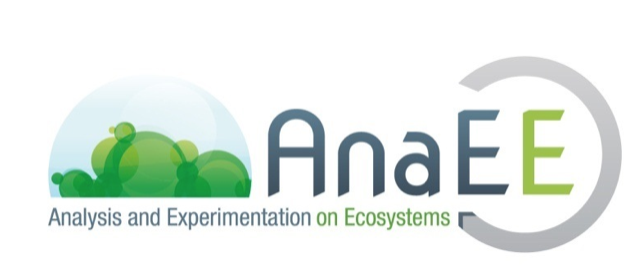
AnaEE (Preparatory Phase):
Infrastructure for Analysis and Experimentation on Ecosystems
Objectives
AnaEE is a Research Infrastructure, registered on the European Strategy Forum on Research Infrastructures (ESFRI 2010) roadmap. The AnaEE Preparatory Phase was initiated in November 2012 until October 2016, followed by the AnaEE Pre-Operational Phase from October 2016 to June 2018.
ANAEE will provide Europe with a distributed and coordinated set of experimental, analytical and modelling platforms to analyse and predict in a precise manner the response of the main continental ecosystems to environmental and land use changes.ANAEE will consist of highly equipped in natura and in vitro experimental platforms associated with sophisticated analytical and modelling platforms coupled to networks of instrumented observation and monitoring sites throughout Europe.
INRA Transfert was in charge of the AnaEE preparatory phase project management, with a consortium of 19 partners from 13 different countries.
INRA Transfert is now in charge of the AnaEE pre-operational phase project management, aiming to build a European Research Infrastructure Consortium (ERIC). This new phase is composed of 5 members (Belgium, Denmark, Israel, France and Czech Republic).
European Commission funding : 3 400 000 € (Budget 4 787 692 €)
Duration : 3,5 years
Start : November 1st 2012
Coordinator : Abad CHABBI (INRA Grignon) - abad.chabbi@inra.fr
Projet manager : Agathe RENARD (INRA Transfert) - agathe.renard@inra.fr
Website : www.anaee.com -
Aquaexcel2020 Open or Close
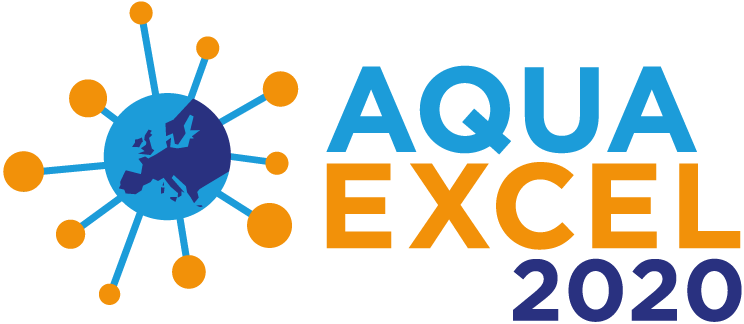
Aquaexcel2020: AQUAculture infrastructures for EXCELlence in European fish research towards 2020
Objectives
AQUAEXCEL2020 is a research infrastructure project funded under the EU’s Horizon 2020 programme and coordinated by the French National Institute for Agricultural Research (INRA). The project, which has started in October 2015, aims to further support the sustainable growth of the European aquaculture sector. AQUAEXCEL2020 will integrate a large group of leading European aquaculture research facilities and aims to advance aquaculture research and innovation in Europe. One of its key aspects will be to provide subsidised access to top-class aquaculture facilities, as well as numerous highly pertinent services for researchers from academia and industry.
Aquaculture provides about half of the fish for human consumption worldwide. The demand for fish is rising, but fisheries are not expected to grow due to fully or over-exploited fish stocks. Aquaculture production seeks to meet this increasing demand for fish, but while the aquaculture sector is growing in the rest of the world, it has stagnated in Europe in recent years. Sustainable growth of the aquaculture sector in Europe, based on efficient and environmentally responsible production of high value fish products, can be achieved by ensuring excellent scientific research and by the results being translated into innovation and industrial growth.
AQUAEXCEL2020 will help to achieve this target by integrating 39 top class European aquaculture research facilities that cover all relevant scientific fields, fish species and systems. The project will provide a single access portal to high-quality, harmonised services and resources tailored to the needs of the European aquaculture community, support and conduct world-class research and provide the basis for a European aquaculture innovation system from basic research to applied science.
European Commission funding : 9 708 861,78 €
Duration : 4 years
Start : October 1st 2015
Coordinator : Dr Marc Vandeputte (INRA Jouy en Josas) - marc.vandeputte@inra.fr
Project manager : Bénédicte Ferreira (INRA Transfert) - benedicte.ferreira@inra.fr
Website : www.aquaexcel2020.eu -
B4BEST Open or Close
 B4BEST : Adaptive BREEDING for productive, sustainable and resilient FORESTs under climate change
B4BEST : Adaptive BREEDING for productive, sustainable and resilient FORESTs under climate change Objectives
The goal of B4EST is to increase forest survival, health, resilience and productivity under climate change and natural disturbances, while maintaining genetic diversity and key ecological functions, and fostering a competitive EU bio-based economy. B4EST will provide forest tree breeders, forest managers and owners, and policy makers with: 1) better scientific knowledge on adaptation profiles and sustainable productivity, and added value of raw materials in important European tree species for forestry, 2) new and flexible adaptive tree breeding strategies, 3) tree genotypes of highly adaptive and economical value, 4) decision-support tools for the choice and use of Forest Reproductive Material (FRM) while balancing production, resilience and genetic diversity, including case studies developed with industrial partners, 5) integrative performance models to guide FRM deployment at stand and landscape level, 6) economic analyses of risks/benefits/costs, and 6) policy recommendations. B4EST will capitalise on the resources developed by past and current EU projects to produce -together with tree breeders, forest managers and owners, and the industry- operational solutions to better adapt forests to climate change and reinforce the competitiveness of the EU forest-based sector. To cover the geographical, economic and societal needs of forestry in the EU, B4EST will work with 8 (six native, two non-native) conifers and broadleaves with advanced breeding programmes (Norway spruce, Scots pine, maritime pine, poplars, Douglas-fir, eucalypts) or that are case studies of pest-threatened forests (ash) or valuable non-wood products (stone pine). Our approach will result in a high degree of data and knowledge integration, involving multiple and new target traits and their trade-offs; genomic information; temporal and spatial assessments in a wide range of environments; stakeholder demands; and forest owner and manager risk perception and acceptability of new breeding strategies.
EC funding : 6 000 000 €
Duration : 4 years
Start : 1st of May 2018
Coordinator : Catherine Bastien, catherine.bastien@inra.fr
Project manager : Anthony Vermue , anthony.vermue@inra.fr
Website : http://www.b4est.eu
-
DiverIMPACTS Open or Close

Diversification through Rotation, Intercropping, Multiple Cropping, Promoted by Actors and Value Chains towards Sustainability
The overall goal of DiverIMPACTS is to realise the full potential of diversification of cropping systems for improved productivity, delivery of ecosystem services and resource-efficient and sustainable value chains by: i) assessing performances of crop diversification through rotation, intercropping and multiple cropping; ii) providing rural areas actors with those key enablers and innovations that would remove existing barriers and ensure actual uptake of benefits of crop diversification at farm, value chain and territory levels; iii) make recommendations to policy-makers to facilitate the coordination of all relevant actors within the value chain. DiverIMPACTS will build on existing experiences of crop diversification by networking and expanding 10 existing field experiments to quantify impacts of crop diversification and by accompanying 25 multi-actor case studies in their dynamic transition. DiverIMPACTS will propose a range of technical and organisational innovations to remove lock-ins from farmers to consumers as well as strategies and recommendations to sustain crop diversification.
The consortium includes a wide range of actors (farmers and farmers’ organisations, advisory services, cooperatives, logistic providers, scientists, industry, representatives of civil society and of rural areas). DiverIMPACTS will, through a multi-actor approach, accompany and support innovation groups in their dynamic process to develop sustainable value chain systems characterised by a high level of crop diversification and new market products. The consortium involves pioneer actors of crop diversification and has great experience in both the design and multi-criteria assessment of innovative systems and the analysis of barriers that may lock-in the transition towards sustainable diversified systems that would contribute to the Rural Renaissance objectives.
EC funding : 9 999 985 €
Duration : 5 years
Start : June 1st 2017
Coordinator : Antoine Messéan, antoine.messean@inra.fr
Project manager : Lise Vedel, lise.vedel@inra.frWebsite : http://www.diverimpacts.net/
-
DIVERSIFOOD Open or Close
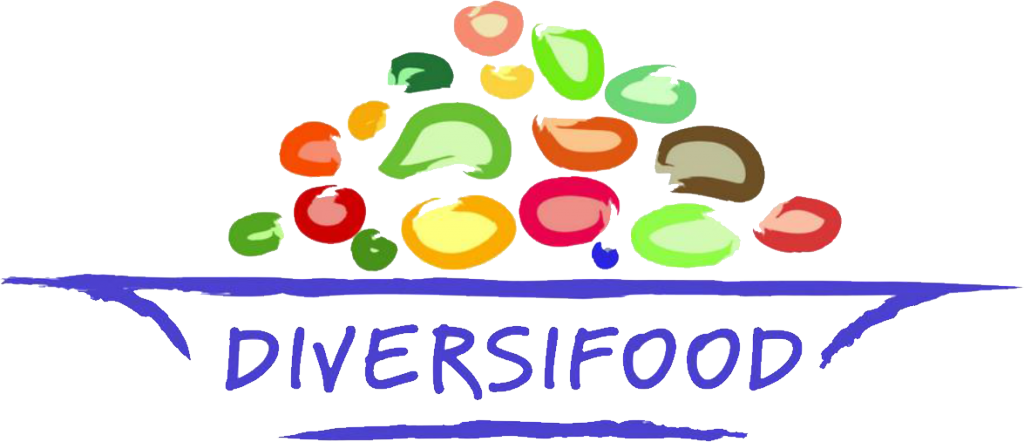
DIVERSIFOOD:
Embedding Crop Diversity and Networking for Local High Quality Food Systems
Objectives
DIVERSIFOOD will evaluate and enrich the diversity of cultivated plants within diverse agroecosystems so as to increase their performance, resilience and quality through a multi-actor approach. By integrating existing experienced networks and using specific and relevant cases across Europe the project will strengthen “food culture” to improve economic viability of local chains resulting in a greater diversity of produce with a cultural identity.
Thanks to the composition of its consortium, DIVERSIFOOD will cover the whole food chain from genetic resources to marketing, connecting and amplifying local existing actions. It will design specific concepts and methodologies for combining in situ experiments to ensure performance and quality. It will evaluate the genetic resources of a dozen underutilized and forgotten plant species for organic and low-input agriculture or marginal/specific conditions. Various combinations of underutilized legumes associated with several cereals will be tested.
A new diversity will be generated by innovative breeding methods designed for more intra-crop variation. DIVERSIFOOD will help to facilitate cooperation between participatory research networks and professional breeders as well as policy makers in connecting formal and informal seed systems in Europe in relation to international negotiations on Farmers’ rights with the International Treaty on Plant Genetic Resources for Food and Agriculture. Key-lessons based on the diverse experiences in the project will be shared to support on-farm seed production networks to guarantee high quality seed.
DIVERSIFOOD will demonstrate the socio-economic value of on-farm seed systems, help at local and wider policy levels to increase food and environmental awareness, and improve multi-actor approaches to embed healthy and tasty local products in regional food chains. Demonstration and dissemination will take place at all stages, in collaboration with network organizations for a greater impact.
EC funding : 3 429 908,75 €
Duration : 4 years
Start : March 1st 2015
Coordinator : Véronique CHABLES - veronique.chables@inra.fr
Project manager : Marion Bondoux - marion.bondoux@inra.fr
Website : http://www.diversifood.eu/ -
EPPN2020 Open or Close

EPPN2020 is a research infrastructure project funded by Horizon 2020 Programme of the EU that will provide European public and private scientific sectors with access to a wide range of state-of-the-art plant phenotyping facilities, techniques and methods, and help boost the exploitation of genetic and genomic resources available for crop improvement that represents a major scientific challenge for this coming decade. EPPN2020 specifically aims to facilitate the community progressing across the whole phenotyping pipeline, involving sensors and imaging techniques, data analysis in relation to environmental conditions, data organization and storage, data interpretation in a biological context and meta-analyses of experiments carried out on different organs at different scales of plant organization.
Specifically EPPN2020 includes:
- Access to 31 key plant phenotyping installations
- Joint research activities to develop: i) novel technologies and methods for environmental and plant measurments, ii) tools for statistical analysis and iii) a European plant phenotyping information systems
- Networking activities to increase integration between phenotyping facilities and users within and outside of EPPN2020
EC funding : 9,999,999.50€ (Budget/total costs 10 220 249€)
Duration : 4 years
Start : 1st May 2017
Coordinator : Dr François Tardieu francois.tardieu@inra.fr
Project's manager : Bénédicte Ferreira benedicte.ferreira@inra.frWebsite : https://eppn2020.plant-phenotyping.eu/
-
EUCLEG Open or Close
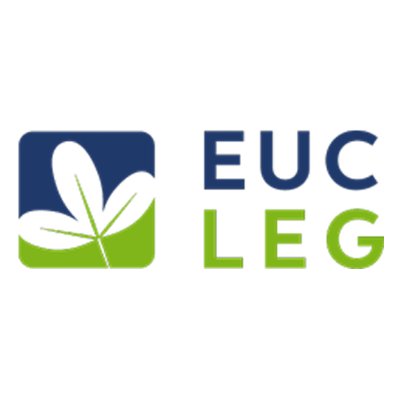 EUCLEG : Breeding forage and grain legumes to increase EU’s and China’s protein self-sufficiency
EUCLEG : Breeding forage and grain legumes to increase EU’s and China’s protein self-sufficiencyObjectives
EUCLEG aims to reduce Europe and China’s dependency on protein imports by developing efficient breeding strategies for the legume crops of major economic importance in human food and animal feed. The objective is to improve diversification, crop productivity, yield stability and protein quality of both forage (alfalfa and red clover) and grain (pea, faba bean and soybean) legumes. Using diverse and extensive genetic resources and taking advantage of advanced molecular tools, EUCLEG aims to identify and develop the best genetic resources, phenotyping methods and molecular tools to breed legume varieties with improved performance under biotic and abiotic stresses in the representative European and Chinese agro-ecological areas. The potential for new uses of forage species for human nutrition will be explored. Searchable databases will be developed or built to host passport, agronomic and genetic data facilitating exchanges and use of genetic resources. The evaluation of genetic resources in multi-site trials will give keys to broaden the breeding material and extend agro-ecological adaptation. The genetic architecture of key breeding traits will be analysed using association studies in order to identify molecular markers related to phenotypic traits. Finally, genomic selection strategies will be assessed for their potential to improve genetic progress. Practical tools for genotyping, data management and calculation will be provided to breeders to implement marker-assisted selection and genomic selection leading to the creation of new varieties in the long-term. The partnership gathered in EUCLEG, combining public institutes and private companies of Europe and China, guaranties the transfer of knowledge from research to seed industry.
EC funding : 5 000 000 €
Duration : 4 years
Start : September 1st 2017
Coordinator : Bernadette Julier - bernadette.julier@inra.fr
Project manager : Cloé Paul-Victor cloe.paul-victor@inra.fr
Website : http://www.eucleg.eu/
-
EUCLID Open or Close

EUCLID: EUCLID EU-CHINA Lever for IPM (Integrated Pest Management) Demonstration
Objectives
EUCLID is a four-year Research and Innovation Action funded by the European Commission under Horizon 2020.
The overall objective is to secure food production for the increasing worldwide population while developing sustainable production methodologies to fight pests with an Integrated Pest Management approach (IPM), to be used in European and Chinese agriculture.
EUCLID research activity aims at developing more sustainable pest management methods in Europe and China in order to reduce the negative effects of pesticides on human health and the environment, to reduce economic losses in agriculture, and to provide scientific support to EU and China policies.
Tomatoes, leaf vegetables and grapes are the main crops of research, due to their economic relevance in the targeted markets; however, research outcomes will also have an impact on other crops. In addition, the project will consider the entire food product chain from agriculture to the final consumers.
EC funding : 3M € (Budget 4 088 722,37€)
Duration : 4 years
Start : September 15 2015
Coordinator : Nicolas Desneux - nicolas.desneux@inra.fr
Project manager : Léa Tourneur - lea.tourneur@inra.fr
Website : www.euclidipm.org/ -
Feed a Gene Open or Close
 Feed-a-Gene:Adapting the Feed, the Animal and the Feeding Techniques to Improve the Efficiency and Sustainability of Monogastric Livestock production systems
Feed-a-Gene:Adapting the Feed, the Animal and the Feeding Techniques to Improve the Efficiency and Sustainability of Monogastric Livestock production systems Objectives
Feed-a-Gene aims to better adapt different components of monogastric livestock production systems (i.e., pigs, poultry and rabbits) to improve the overall efficiency and to reduce the environmental impact. This involves the development of new and alternative feed resources and feed technologies, the identification and selection of robust animals that are better adapted to fluctuating conditions, and the development of feeding techniques that allow optimizing the potential of the feed and the animal.
The project will:
- Develop new and alternative feeds and feed technologies to make better use of local feed resources, green biomass and by-products of the food and biofuel industry.
- Develop methods for the real-time characterization of the nutritional value of feeds to better use and adapt diets to animal requirements.
- Develop new traits of feed efficiency and robustness allowing identification of individual variability to select animals that are more adapted to changes in feed and environmental conditions.
- Develop biological models of livestock functioning to better understand and predict nutrient and energy utilization of animals along their productive trajectory.
- Develop new management systems for precision feeding and precision farming combining data and knowledge from the feed, the animal, and the environment using innovative monitoring systems, feeders, and decision support tools.
- Evaluate the overall sustainability of new management systems developed by the project.
- Demonstrate the innovative technologies developed by the project in collaboration with partners from the feed industry, breeding companies, equipment manufacturers, and farmers’ organisations to promote the practical implementation of project results.
- Disseminate new technologies that will increase animal production efficiency, whilst maintaining product quality and animal welfare and enhance EU food security to relevant stakeholders.
EC funding : 9M € (Budget 9,9M €)
Duration : 5 years
Start : March 1st 2015
Coordinator : Jaap van Milgen - jaap.vanmilgen@inra.fr
Project manager : Vincent Troillard - vincent.troillard@inra.fr
Website : www.feed-a-gene.eu -
GENE-SWitCH Open or Close
 GENE-SWitCH:
GENE-SWitCH:Objectives
GENE-SWitCH aims to deliver new underpinning knowledge on the functional genomes of two main monogastric farm species (pig and chicken) and to enable immediate translation to the pig and poultry sectors. The activation status of functional genome sequences varies across time and space, and in response to environmental perturbations. In full coordination and synergy with global effort and ongoing projects of the Functional Annotation of Animal Genomes (FAANG) community, we will characterize the dynamics (“switches”) of the functional genome from embryo (chicken) and fetus (pig) to adult life by targeting a panel of tissues relevant to sustainable production. New expression QTL data in pigs and existing high-resolution QTL data in chicken will be used for developing innovative genomic predictive models that integrate functional annotations, and these models will be validated in commercial pig and poultry populations. In addition, nutritional epigenetic data will allow evaluation of the influence of maternal diet on the epigenome of the pig fetus and whether such effects persist until post-weaning. These openshared datasets will conform fully with FAANG standards and add valuable knowledge on genetic and epigenetic variation of functional elements to FAANG. A comprehensive plan of dissemination and outreach activities to a large audience of stakeholders will be implemented. The GENE-SWitCH consortium brings together partners representing pan-European excellence (including the academic institutions which pioneered FAANG) and world-leading animal breeding and biotech industry in a true co-creation effort. Overall, GENE-SWitCH will contribute to the global FAANG effort considerably, demonstrate how functional annotation of genomes can foster the advancement of genomic selection for immediate benefit to the breeding industry, and produce cutting-edge research paving the way to new studies and strategies for sustainable productions.
EC funding : 6 million euros
Durée : 4 years
Start : July 1st 2019
Coordinator : Elisabetta Giuffra elisabetta.giuffra@inra.fr (co-coordinator : Hervé Acloque herve.acloque@inra.fr)
Project manager : Camille Bénard camille.benard@inra.fr
Website : https://www.gene-switch.eu/
-
GenTORE Open or Close
The objective of GenTORE is to develop innovative genome-enabled selection and management tools to optimise cattle resilience and efficiency (R&E) in widely varying environments. These tools, incorporating both genetic and non-genetic variables, will be applicable across the full range of systems (beef, milk and mixed), and will thereby increase the economic, environmental and social sustainability of European cattle meat and milk production systems.
To achieve this, GenTORE brings together:
- multidisciplinary scientific expertise in genomics, environmental assessment, nutritional physiology, health management, precision livestock farming, mathematical modelling, and socio-economics;
- partners and stakeholders representing breeding organisations, farm technology companies, farm and veterinary advisory services, and farm sectors (organic, grazing, etc.);
- a unique data basis including >1 million genotypes.
This multi-actor team will develop tools for:
- multi-breed selection for R&E,
- characterisation of diverse farm environments,
- large-scale phenotyping of R&E using on-farm technology,
- on-farm management of breeding and culling decisions,
- and predicting the consequences for farm resilience of changing breeding and management.
These tools are designed to be applicable under commercial conditions at the end of the project. They will allow increased use of the genomic diversity in cattle breeds, e.g. use of selective cross-breeding to best exploit the local production environment. They will also allow farm managers, their advisors, and policy-makers, to assess the relative importance of breeding for animal resilience vs breeding for efficiency, with respect to system resilience. As such GenTORE will not only enable the use of genomic information to facilitate predictive biology of efficiency- and resilience-related traits, but will also increase resilience of livestock production in the face of current and future challenges of climate change and food security.
EC funding : 6 999 999,75 €
Duration : 5 years
Start : 1st june 2017
Coordinator : Nicolas Friggens – nicolas.friggens@agroparistech.fr
Project manager : Agathe Renard – agathe.renard@inra.fr
-
GenTree Open or Close
 GenTree : Optimising the Management and Sustainable Use of Forest Genetic Resources in Europe
GenTree : Optimising the Management and Sustainable Use of Forest Genetic Resources in EuropeObjectives
The goal of GenTree is to provide the European forestry sector with better knowledge, methods and tools for optimising the management and sustainable use of forest genetic resources (FGR) in Europe in the context of climate change and continuously evolving demands for forest products and services.
To reach its goal, GenTree will make scientific, technological and implementation breakthroughs in:
- designing innovative strategies for dynamic conservation of FGR in European forests
- broadening the range of FGR used by European breeding programmes
- preparing new forest management scenarios and policy frameworks fully integrating genetic conservation and breeding aspects, to adapt forests and forestry to changing environmental conditions and societal demands.
GenTree focuses on economically and ecologically important tree species in Europe, growing in a wide range of habitats and covering different societal uses and values.
EC funding : 6,7M € (Budget 8M €)
Duration : 4 years
Start : March 1st 2016
Coordinator : Bruno FADY - bruno.fady@inra.fr
Project manager : Yohan LECUONA – yohan.lecuona@inra.frWebsite : http://www.gentree-h2020.eu/
-
HOMED Open or Close
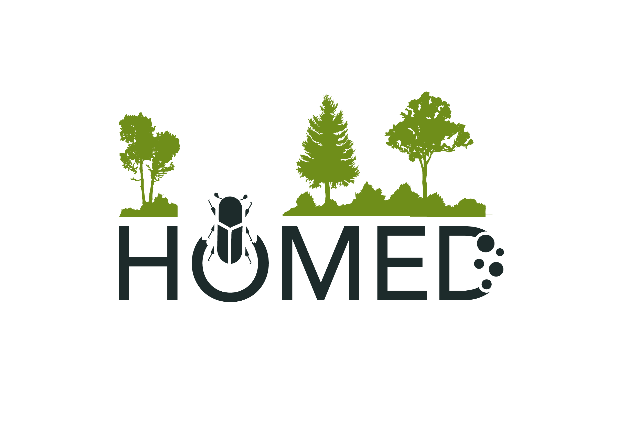 HOMED: HOlistic Management of Emerging forest pests and Diseases
HOMED: HOlistic Management of Emerging forest pests and DiseasesObjectives
HOMED will provide a full set of science-based, innovative practical methods and tools to assess and control emerging or invasive pests and pathogens threatening European Union forests, following a holistic and multi-actor approach. Holistic because it will improve strategies of risk assessment and management by targeting the successive phases of invasion (transport, introduction, establishment, spread), and developing mitigation methods for each phase, i.e. prevention, detection and diagnosis, surveillance, eradication and control tools. Multi-actor because scientists will communicate with stakeholders all along the project; forest managers, biosecurity agencies, policy makers and environmental NGOs will be asked to express their needs and constrains and validate the tools as they develop.
Innovation will be central, as the new tools for pest management will benefit from the most advanced technology, e.g. electronic sensors, hyper spectral cameras, the latest satellite constellation, high-throughput sequencing, unmanned aerial vehicles and artificial intelligence. As it is impossible to foresee the next invasive or emerging pest or pathogen, the overall approach will be generic. However, the new tools will be tested on four main types of pests and pathogens, i.e. foliar moths and needle blights causing tree growth loss, wood boring beetles and dieback fungi causing tree mortality. Prominent experts from the main forested countries of EU and the main regions of origin of invasive pests, e.g. North America, Australasia, China and South Africa, will contribute to the project, and ensure continuity and complementarity with past and current Euphresco and EU projects. By developing cost-effective, environmentally friendly tools for the prevention, detection and control, the project will reduce the tremendous economic losses caused by invasive forest pests and pathogens and help to maintain the critical ecosystem services provided by EU forests, including climate change mitigation.
EC funding : 4 999 296 €
Duration : 4 years
Start : October 1st 2018
Coordinator : Hervé Jactel herve.jactel@inra.fr
Project manager : Oriana Rossi oriana.rossi@inra.fr
Website: http://homed-project.eu/contact
-
IBISBA 1.0 Open or Close
 IBISBA 1.0:
IBISBA 1.0:Industrial Biotechnology Innovation and Synthetic Technology Accelerator
Objectives
IBISBA 1.0 is a H2020-funded project that aims at building a European distributed network of research facilities to provide innovation services and accelerate translation of bioscience research into industrial applications.
IBISBA 1.0 provides access to a specialised research facilities for all industrial biotechnology professionals, including academic researchers, SMEs and large companies.
The IBISBA 1.0 network also offers subsidised access through its Transnational Access (TNA) programme and will develop a variety of activities, such as training, that will benefit the wider scientific community.
Focusing on e-services, the IBISBA 1.0 project will develop a dedicated knowledge hub that will provide users with FAIR access to a wide variety of project assets, such as standard operating protocols (SOPs), workflows publically-accessible, project deliverables and datasets.
Looking to the future, the overarching aim of IBISBA 1.0 project is to create a European distributed research infrastructure that will provide a range of research support services to the Industrial Biotechnology community in Europe and worldwide.
EC funding : 5 000 000 €
Duration : 4 years
Start : 1st December 2017
Coordinator : Michael O’Donohue michael.odonohue@inra.fr
Project manager : Lise Vedel, lise.vedel@inra.frWebsite : www.ibisba.eu
-
IMAGE Open or Close
 IMAGE: Innovative Management of Animal Genetic Resources
IMAGE: Innovative Management of Animal Genetic ResourcesObjectives
IMAGE aims at enhancing the use of genetic collections and upgrading animal gene bank management. IMAGE will further develop genomic methodologies, biotechnologies and bioinformatics for a better knowledge and exploitation of animal genetic resources.
The ultimate goal of the project is to demonstrate the benefits brought by gene banks to the development of more sustainable livestock farming systems. The main approaches of IMAGE were presented:
- Involving the stakeholders from the beginning: a first meeting will take place at the opening of the 67th annual meeting of the European Association of Animal Production (EAAP) in Belfast, Northern Ireland, on 28 August 2016; different types of stakeholders are relevant for IMAGE and targeted meetings may be needed on a case by case basis;
- Improving the reproductive quality of the gene bank samples and their ‘usability’ in the field, with the development of new protocols and the perspective to assess the potential of new technologies to improve the cost-efficiency of using gene bank samples;
- Improving the connection between gene bank managers and supporting the set-up of the European Gene Bank Network for Animal Genetic Resources (EUGENA) in connection with the European Regional Focal Point;
- Assessing the potential of genetic diversity present in genetic collections by genomics and data integration;
- Facilitating access to information and resources by developing a new model for data integration in a web portal, and registering collections into the BioSamples database of EMBL-EBI;
- Developing, testing and demonstrating strategies and scenarios to facilitate the use of this diversity and to enhance synergy between gene banks and on-farm management of genetic resources; and
- Increasing awareness about the value of gene banks by a multi-faceted dissemination programme, including decision support tools for breeds and North-South workshops for capacity building.
EC Funding : 7M € (budget 9.013.156€)
Duration : 4 years
Start : March 1st 2016
Coordinator : Michele Tixier Boichard - michele.boichard@inra.fr
Project Manager : Irina Carpusca - irina.carpusca@inra.fr
Website : www.imageh2020.eu -
LEGVALUE Open or Close
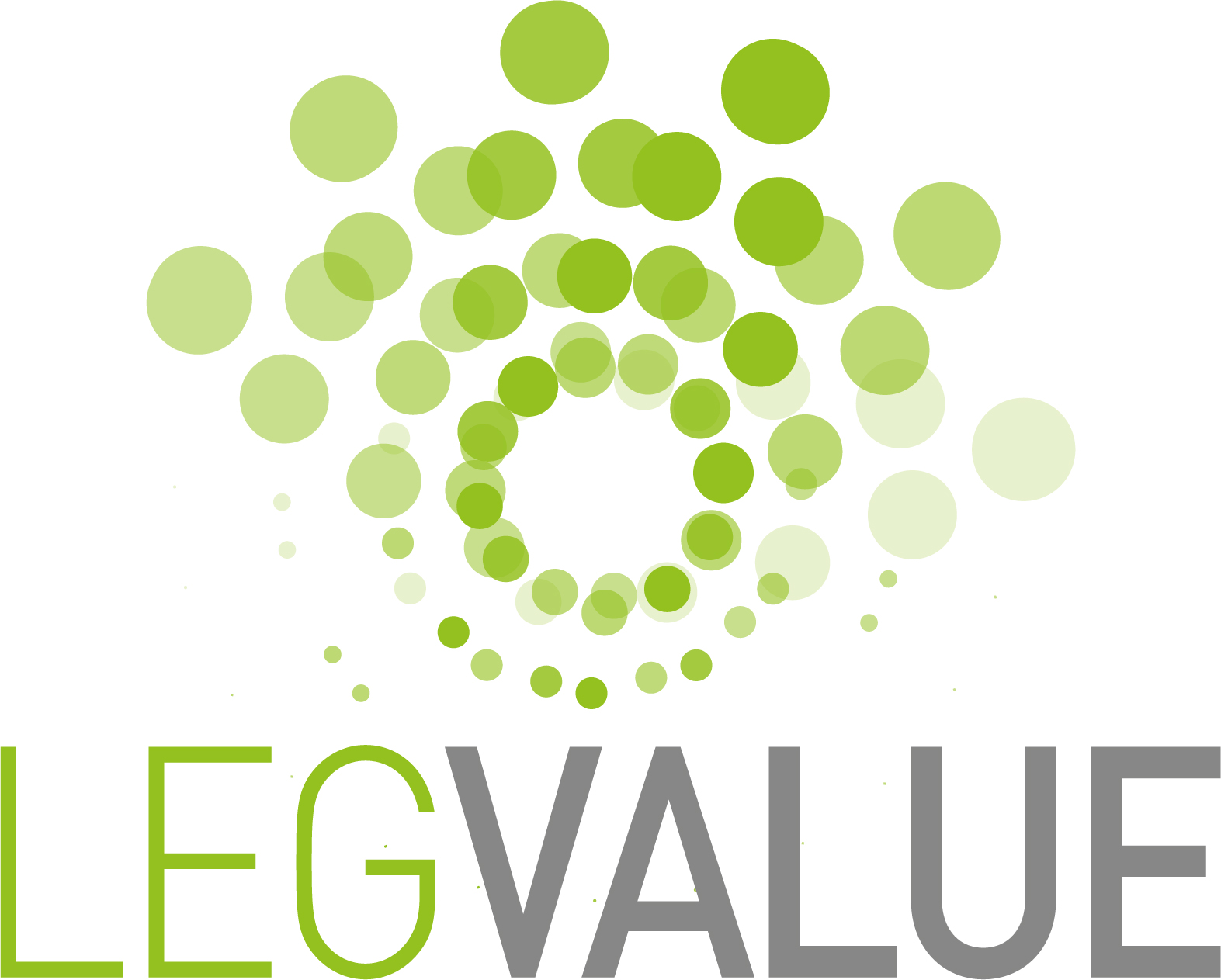 LEGVALUE : To develop sustainable legume-based farming systems and agri-feed and food chains in the EU
LEGVALUE : To develop sustainable legume-based farming systems and agri-feed and food chains in the EUObjectives
The goal of LEGVALUE is to pave the road to develop sustainable and competitive legume-based farming systems and agrifeed and food chains in the EU. To this end, the project will assess both the economic and environmental benefits for the EU agro industry to widely produce and use legumes in a sustainable manner. Using a list of 20 value chains reflecting the market diversity, and a list of 20 farm networks covering the diversity of grain legumes and fodder legumes species, LEGVALUE will demonstrate the added value of various legumes value chains and will provide a range of solutions to improve the economic interest of each actor involved in the value chains to use legumes. The feature of LEGVALUE is an approach to research that takes stakeholder-driven objectives. The gap between research and practice will be overcome with close collaboration between non-academic actors and scientists. LEGVALUE will result in the first decision tool for farmers to choose the optimal legume species with their adapted crop management and to assess the economic and environmental benefits of legumes in the cropping and grassland systems. LEGVALUE will contribute to identifying the supply chains that are the most competitive to foster legumes crops so helping the EU to identify: i) the technological topics that must be supported in priority to enhance legumes development; ii) insights into how to support actors coordination for better added value sharing iii) the new standards that will help trade and process of legumes. LEGVALUE will provide accurate recommendations for the development of legumes in the EU. By removing current market opacity and the design of transition pathways, LEGVALUE will provide scientific support for EU and national policy-makers directed at increasing legume production, support technological innovation and organisational innovation in supply chains, meeting the EU Parliament 2011 motion on increasing self-sufficiency on protein rich plant materials.
EC funding : 5 000 000€
Duration : 4 years
Start : June 1st 2017
Coordinator : Frederic Muel, f.muel@terresinovia.fr
Project manager : Emna Ben Hamza, Emna.BenHamza@inra.fr
-
LIFT Open or Close
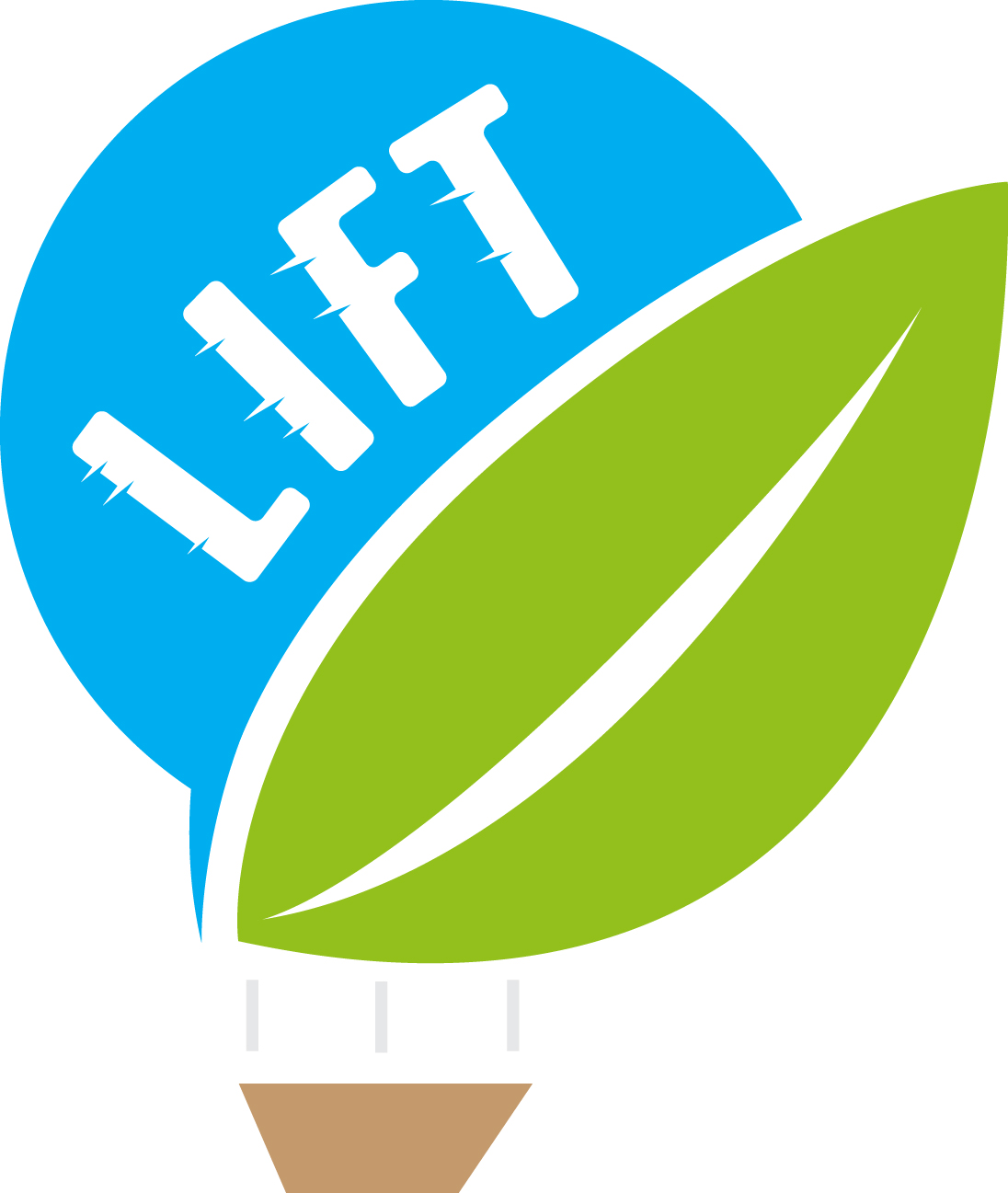 LIFT: « Low Input Farming and Territories - Intégrer les connaissances pour améliorer l'agriculture écosystémique »
LIFT: « Low Input Farming and Territories - Intégrer les connaissances pour améliorer l'agriculture écosystémique »Objectives
The LIFT: “Low-Input Farming and Territories – Integrating knowledge for improving ecosystem-based farming” is a research project funded under the European Union’s Horizon 2020 research programme under the topic “SFS-29-2017 – Socio-eco-economics – socio-economics in ecological approaches”. LIFT brings together 17 partners from 12 Member States.
The overall objective of LIFT is to identify the potential benefits of the adoption of ecological farming in the European Union (EU) and to understand how socio-economic and policy factors impact the adoption, performance and sustainability of ecological farming at various scales, from the level of the single farm to that of a territory.
To meet this goal, LIFT will assess the determinants of adoption of ecological approaches, and evaluate the performance and overall sustainability of these approaches in comparison to more conventional agriculture across a range of farm systems and geographic scales.
EC funding : 5 000 000€
Duration : 4 years
Start : 1st of May 2018
Coordinator : Laure Latruffe - laure.latruffe@inra.fr
Project manager : Floriana Pondichie - Floriana-Alina.Pondichie@inra.fr
Website : https://www.lift-h2020.eu
-
NoAW Open or Close
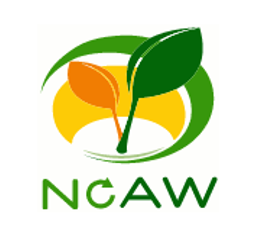 NoAW: No Agro-Waste
NoAW: No Agro-WasteObjectives
Driven by a near zero-waste society requirement, the goal of NoAW project is to generate innovative efficient approaches to convert growing agricultural waste issues into eco-efficient bio-based products opportunities with direct benefits for both environment, economy and EU consumer.
To achieve this goal, the NoAW concept relies on developing holistic life cycle thinking able to support environmentally responsible R&D innovations on agro-waste conversion at different TRLs, in the light of regional and seasonal specificities, not forgetting risks emerging from circular management of agro-wastes (e.g. contaminants accumulation). By involving all agriculture chain stakeholders in a territorial perspective, the project will:
- develop innovative eco-design and hybrid assessment tools of circular agro-waste management strategies and address related gap of knowledge and data via extensive exchange through the Knowledge exchange Stakeholders Platform,
- develop breakthrough knowledge on agro-waste molecular complexity and heterogeneity in order to upgrade the most widespread mature conversion technology (anaerobic digestion) and to synergistically eco-design robust cascading processes to fully convert agro-waste into a set of high added value bio-energy, bio-fertilizers and bio-chemicals and building blocks, able to substitute a significant range of non-renewable equivalents, with favourable air, water and soil impacts,
- get insights of the complexity of potentially new, cross-sectors, business clusters in order to fast track NoAW strategies toward the field and develop new business concepts and stakeholders platform for cross-chain valorisation of agro-waste on a territorial and seasonal basis.
EC funding : 7M € (Budget 7 816 232,50 €)
Duration : 4 years
Start : October 1st 2016
Coordinator : Nathalie GONTARD - nathalie.gontard@inra.fr
Project manager : Parisa Louise DARZI - parisa-louise.darzi@inra.fr -
ParaFishControl Open or Close
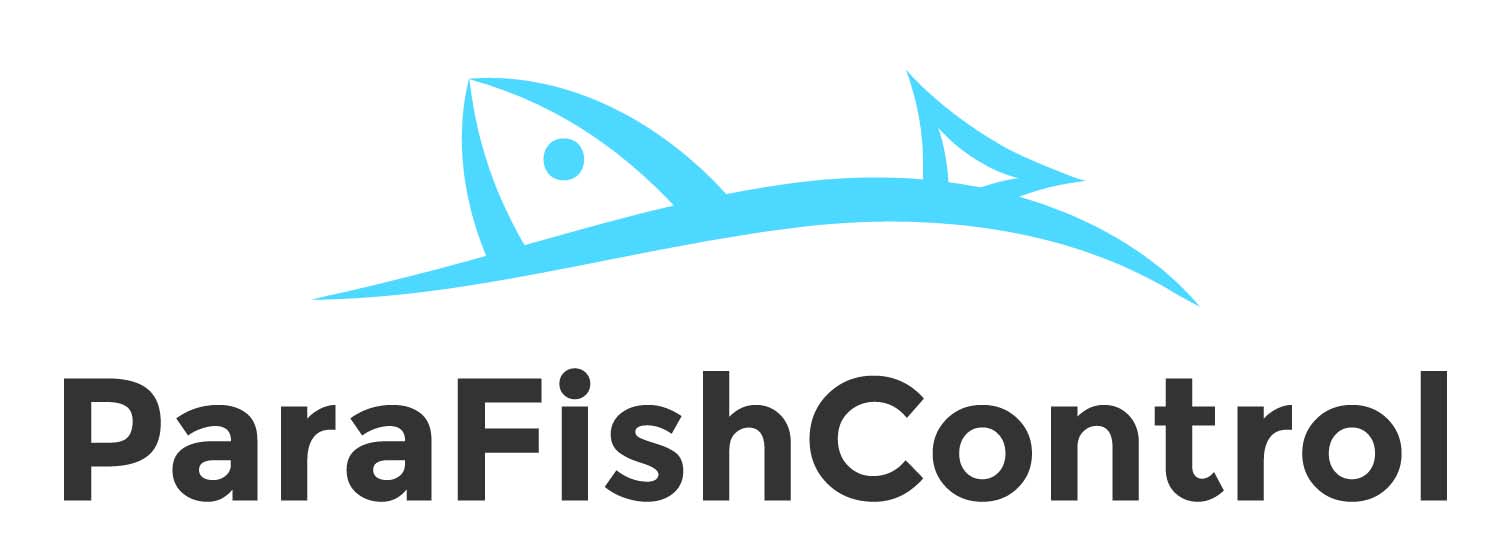
ParaFishControl:
Advanced Tools and Research Strategies for Parasite Control in European Farmed Fish
Objectives
ParaFishControl is a European Union funded project under the Horizon 2020 programme. The overarching goal of ParaFishControl is to increase the sustainability and competitiveness of the European aquaculture industry. The 29 partner strong consortium will achieve this by improving our understanding of fish-parasite interactions and by developing innovative solutions and tools for the prevention, control and mitigation of the most harmful parasitic species affecting the main European farmed fish species.
Aquaculture is the fastest growing food producing sector worldwide, currently providing half of all aquatic animals for human consumption. If responsibly developed and practised, aquaculture can generate lasting benefits for global food security and economic growth. Parasites and related infections can cause significant damage to farmed fish resulting in poor growth performance, impaired welfare and high mortality rates, which can significantly hamper aquaculture production and economic performance. Disease prevention and management are therefore essential for the sustainability of the aquaculture industry.
The concept of ParaFishControl is to strengthen the applied knowledge base for parasites of European farmed fish, bridging the gap between fundamental knowledge of parasite biology, host-parasite interactions and the development of practical applications for the prevention, diagnosis and treatment of the principal parasitic diseases, as well as characterising transfer of parasites between wild and farmed fish populations.
Activities in ParaFishControl will be carried out over five years in working groups arranged into nine work packages which are cross-cutting and integrate all fish host species and their relevant parasites.
ParaFishControl will carry out a dynamic programme to ensure dissemination of the research findings to a variety of stakeholders such as scientists working in academia or industry, fish farmers/growers, fish health professionals, agricultural advisors, breeders, consumers and policy makers as well as the public.
EC funding : 7,8M € (Budget 8 063 877,50 €)
Duration : 5 years
Start : April 1st 2015
Coordinator : Ariadna Sitjà-Bobadilla - parafishcontrol.coordination@csic.es
Project manager : Enric Belles-Boix – enric.belles-boix@paris.inra.fr
Website : www.parafishcontrol.eu -
PPILOW Open or Close
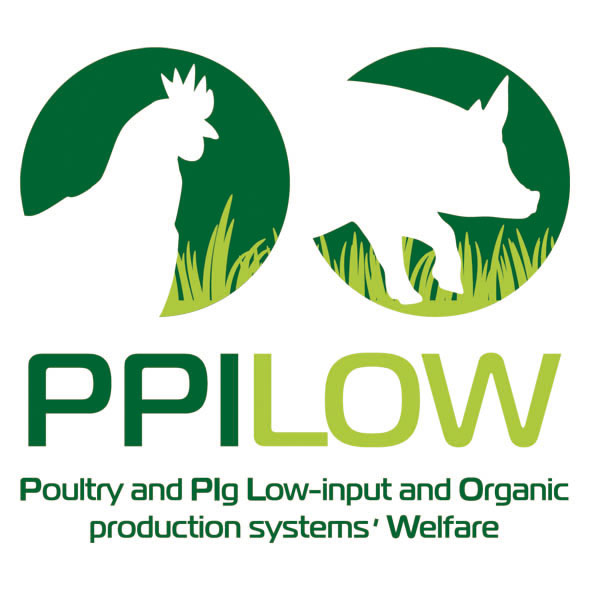 PPILOW: « Poultry and PIg Low-input and Organic production systems’ Welfare »
PPILOW: « Poultry and PIg Low-input and Organic production systems’ Welfare »Objectives
The PPILOW project aims to co-construct through a multi-actor approach solutions to improve the welfare of poultry and pigs reared in organic and low-input outdoor farming systems. The first originality of PPILOW is the participatory approach, involving all actors of the production chain from farmers to consumers, citizens, scientists and policy makers, for proposing and studying welfare improvement levers.
The second originality of the project is to provide a combination of practical solutions for welfare improvement that can be applied on a pan-European basis with specific adjustments depending on citizen’s expectations and the target market (national legislation or consumer preferences). More precisely, PPILOW will cocreate with end-users welfare self-assessment tools, innovative breeding and rearing strategies and techniques for improving the welfare of animals by avoiding mutilations (piglet castration or beak trimming in poultry), the elimination of one day-old layer male chicks, favouring positive behaviours, and improving health and robustness in both species.
The innovative solutions will be investigated experimentally and the most promising ones will be tested on-farm. Multi-criteria analyses of the most effective breeding and rearing strategies will then be realised to evaluate their economic, social and environmental impacts based on the ‘One Welfare’ concept embracing sustainability goals with specific emphasis on animal and human welfare. Business models will be created for the use of high-quality products issued from the adoption of PPILOW strategies to improve welfare in organic and low-input outdoor farming systems for poultry and pigs. Finally, to ensure the rapid uptake of the project results by end-users, appropriate dissemination activities will be developed (such as training, digital videos from field partners, EIP abstracts…) and the close involvement of national practitioner groups throughout the EU will be managed to facilitate change.
EC funding : 10 000 000€
Duration : 5 years
Start : September 1st 2019
Coordinator : Anne Collin – anne.collin-chenot@inra.fr
Project manager : Joselle Latchoumia – joselle.latchoumia@inra.fr
Website : www.ppilow.eu
-
ReMIX Open or Close
ReMIX : Redesigning European cropping systems based on species MIXtures
Objectives
ReMIX will exploit the benefits of species mixtures to design more diversified and resilient agro-ecological arable cropping systems less dependent on external inputs. Based on a multi-actor approach, ReMIX will produce new knowledge that is both scientifically credible and socially valuable in conventional and organic agriculture. It will tackle practical questions and co-design ready-to-use practical solutions adapted to producing mainly grain cash crops in diverse EU pedo-climatic conditions. ReMIX will: 1) overcome barriers to stimulate the adoption of species mixtures by farmers and in agri-food chains, 2) unravel mechanisms of plant-plant interactions to maximise resource use efficiency, 3) determine the role of species mixtures in controlling diseases, pests and weeds and alleviating yield damages, 4) demonstrate the role of species mixtures in improving ecosystem service provision and development of resilience to biotic stress, 5) identify key traits and create novel breeding and phenotyping methods and tools adapted to species mixtures, 6) generate novel breeding material adapted to grain legume/cereal mixtures, 7) develop generic rules for assembling species for efficient cash crop production using process-based simulation models, 8) develop new management techniques to optimise species mixtures performance, 9) optimise settings and specifications for agricultural machines for harvesting and separating grains, and 10) develop a tool box, an educational serious game and technical booklets for farmers and advisors. The project will span from the specification of end-user needs and the co-design of in-field and on-farm experiments to demonstrations with evaluation of new varieties and practices. ReMIX will contribute to the adoption of productive and resilient agricultural systems based on plants diversity, to increase legume production and competitiveness in EU and to healthier diets based on plant proteins from cereals and legumes.
EC funding : 5M€
Duration : 4 years
Start : May 1st 2017
Coordinator : Eric Justes - eric.justes@inra.fr
Project manager : Elodie Tan - elodie.tan@inra.fr
Website : www.remix-intercrops.eu
-
ROADMAP Open or Close
ROADMAP:
Objectives
The overall aim of ROADMAP is to foster transitions towards prudent use of antimicrobials (AMs) in animal production in different contexts to manage antimicrobial resistance (AMR). Prudent antimicrobial use (AMU) will be achieved by enhancing antimicrobial decision-systems along the food and drug supply chains. ROADMAP will focus on supporting animal health and welfare through prevention and health promotion actions.
EC funding : 5 999 753 €
Duration : 4 years
Start : 1st of june 2019
Coordinator : Fortané Nicolas, nicolas.fortane@inra.fr
Project manager : Floriana Pondichie, Floriana-Alina.Pondichie@inra.fr
-
SAPHIR Open or Close
 SAPHIR: Strengthening Animal Production and Health through the Immune Response
SAPHIR: Strengthening Animal Production and Health through the Immune ResponseObjectives
The European research project SAPHIR aims to develop innovative, safe, affordable and effective vaccine strategies effective against endemic pathogens responsible for high economic losses in livestock.
By generating vaccine strategies for these pathogens in pigs, poultry and ruminants, SAPHIR will aid in strengthening the profitability of food animal systems, improve animal welfare and reduce xenobiotic usage in farming with a ‘One Health’ perspective.
SAPHIR brings together interdisciplinary expertise from fourteen academic institutes including a Chinese partner, five SMEs, one pharmaceutical companies and a forum of animal breeders.
EC funding : 9M € (Budget 10.7M €)
Duration : 4 years
Start : March 1st 2015
Coordinator : Isabelle Schwartz-Cornil - isabelle.schwartz@inra.fr
Project manager : Pamela Lucas - pamela.lucas@inra.fr
Website : http://www.h2020-saphir.eu/ -
SmartCow Open or Close
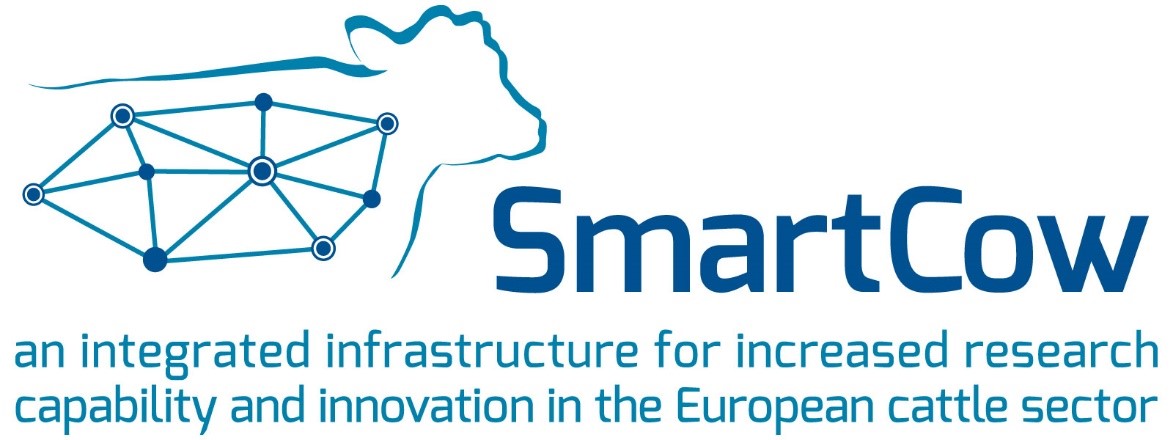
SmartCow: an integrated infrastructure for increased research capability and innovation in the European cattle sector
Objectives
Although livestock production is vitally important for Europe’s future (€130 billion to the EU economy - 48% of the agricultural sector, employment for ~ 30 million people), it receives much criticism due to environmental concerns and issues on animal health and welfare. Ruminant production systems have been singled out, with red meat in particular targeted as being environmentally unfriendly. Thus, research in animal agriculture is challenged to find solutions to improve resource use efficiency, reduce anthropogenic GHG emissions and improve animal health and welfare of livestock. At the same time, livestock research infrastructures (RIs) are notoriously expensive to equip and maintain. One of the obstacles to research and innovation in the European cattle sector is the lack of coordination and integration of RIs despite several recommendations already published (ESFRI roadmap 2016, Animal Task Force 2016). Coordination, harmonisation, and access to European research infrastructures are essential to support research and innovation for the cattle sector, and to contribute to a sustainable, smart, and competitive animal agriculture in Europe.
The SmartCow project started on 1st February 2018 for 4 years. It gathers 14 partners across Europe. SmartCow integrates key European cattle research infrastructures, to promote their coordinated use and development and thereby help the European cattle sector face the challenge of sustainable production. Covering all the relevant scientific fields and the diversity of cattle types and production systems, SmartCow will provide the academic and private research communities with easy access to 11 major research infrastructures from 7 countries (18 installations) of high quality services and resources. It will develop innovative and ethical solutions for efficient use of animal and feed resources that promote animal welfare and healthy livestock, as well as sustainable competitiveness.
SmartCow combines strong scientific and technical skills in animal nutrition and physiology (in vivo methods for evaluating nutrient utilisation, excretion and emissions), genetics (genotyped animals, phenotyping capabilities), health and welfare (sensors and automatic recordings of physiological and behavioural traits) and ethics in animal experimentation. Joint research activities will be carried out to refine reference methods in ruminant nutrition and proxies (biomarkers measured on milk, blood, feces…) to evaluate feed efficiency and its biological determinants, develop new protocols and guidelines to reduce the use of animals, and produce new methods to exploit sensor data for cattle husbandry. It will contribute to the implementation of 3R principles (reduce, refine, replace) in cattle experimentation. Networking activities will make it possible to harmonise and standardise procedures especially in animal care and measurements, design of experiments, data recording and analysis. The data generated will be shared in a cloud-based data-platform dedicated to the project. Thanks to a transnational access to the SmartCow infrastructures, the project will provide free access to around 10,000 “cow.weeks” of experiment to researchers all around Europe and will thus facilitate around 30 research projects. Promotion of transnational access and dissemination of SmartCow outcomes and innovations will be supported by a Stakeholder Platform composed of pre- and post-farm gate industry, farmer organisations, NGOs, policy makers at national and EU levels for maximum impact.
SmartCow is a first step towards the integration of key research infrastructures for dairy and beef of European and worldwide interest. This could then be built upon to create an advanced European cattle infrastructure network, working towards the ultimate goal of an integrated European farm animal research infrastructure.
EC funding : 5 million euros
Duration : 4 years
Start : Febraury 1st 2018
Coordinator : René Baumont rene.baumont@inra.fr
Project manager : Léa Tourneur lea.tourneur@inra.fr
Website: http://www.smartcow.eu/
-
SMARTER Open or Close
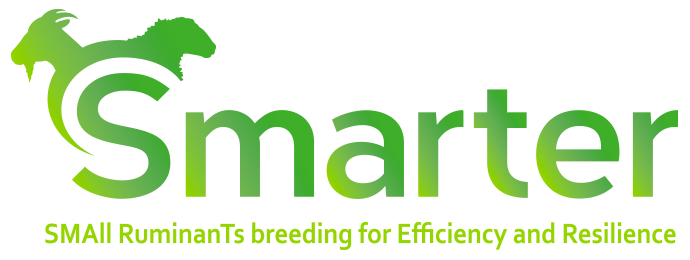 SMARTER: SMAll RuminanTs breeding for Efficiency and Resilience
SMARTER: SMAll RuminanTs breeding for Efficiency and ResilienceObjectives
SMARTER will develop and deploy innovative strategies to improve Resilience and Efficiency (R&E) related traits in sheep and goats. SMARTER will find these strategies by: i) generating and validating novel R&E related traits at a phenotypic and genetic level ii) improving and developing new genome-based solutions and tools relevant for the data structure and size of small ruminant populations, iii) establishing new breeding and selection strategies for various breeds and environments that consider R&E traits. SMARTER with help from stakeholders chose several key R&E traits including feed efficiency, health (resistance to disease, survival) and welfare. Experimental populations will be used to identify and dissect new predictors of these R&E traits and the trade-off between animal ability to overcome external challenges. SMARTER will estimate the underlying genetic and genomic variability governing these R&E related traits. This variability will be related to performance in different environments including genotype-by-environment interactions (conventional, agro-ecological and organic systems) in commercial populations. The outcome will be accurate genomic predictions for R&E traits in different environments across different breeds and populations. SMARTER will also create a new cooperative European and international initiative that will use genomic selection across countries. This initiative will make selection for R&E traits faster and more efficient. SMARTER will also characterize the phenotype and genome of traditional and underutilized breeds. Finally, SMARTER will propose new breeding strategies that utilise R&E traits and trade-offs and balance economic, social and environmental challenges. The overall impact of the multi-actor SMARTER project will be ready-to-use effective and efficient tools to make small ruminant production resilient through improved profitability and efficiency.
EC funding : 7 million euros
Duration : 4 years
Start : November 1st 2018
Coordinator : Carole Moreno-Romieux carole.moreno-romieux@inra.fr
Project manager : Cloé Paul-Victor cloe.paul-victor@inra.fr
Site web: www.smarterproject.eu
-
SolACE Open or Close
 SolACE : Solutions for improving Agroecosystem and Crop Efficiency for water and nutrient use
SolACE : Solutions for improving Agroecosystem and Crop Efficiency for water and nutrient use Objectives
SolACE's overarching goal is to help European agriculture facing the challenge to deal with more frequent combined limitations of water and nutrients in the coming decades, through the design of novel crop genotypes and agroecosystem management innovations to improve water and nutrient (i.e. N and P) use efficiency. To achieve this goal, SolACE will focus its activities on three major European crops - potato, bread and durum wheat - and will identify the (i) optimum combinations of above- and below-ground traits for improving resource use efficiency, (ii) best-performing genotypes under combined water and N or P stresses and (iii) novel practices that make better use of plant-plant and plant-microbe interactions to access water, N and P resources in conventional, organic and conservation agriculture. SolACE will implement a double interactive innovation loop, based on agroecosystem management and breeding strategies, and will imply the engagement of diverse end-users, across the production chain, from farmers and farm advisors to NGOs, SMEs and larger industries in the agri-business sector, through the SolACE consortium and a range of stakeholders' events. The tested innovations will include crop genotype mixtures, legume-based crop rotations and cover crops, microbial inoculants, as well as improved decision support systems and hybrids or products from genomic selection and participatory evolutionary breeding schemes. SolACE will implement complementary approaches, from data mining, modelling, phenotyping in high throughput platforms and field conditions, to experiments in research stations and farmers' networks in contrasted pedo-climatic zones. Through the co-design and co-assessment with the end-users of the selected novel breeding and management strategies to increase the overall system resource use efficiency, the findings of SolACE will be deemed acceptable and readily available for dissemination to a broad spectrum of stakeholders, including policy-makers.
EC funding : 6 000 000 €
Duration : 5 years
Start : May 1st 2017
Coordinator : Philippe Hinsinger - philippe.hinsinger@inra.fr
Project manager : Lise Vedel - lise.vedel@inra.fr
Website : http://www.solace-eu.net/
-
VetBioNet Open or Close
 VetBioNet : Veterinary Biocontained facility Network for excellence in animal infectiology research and experimentation
VetBioNet : Veterinary Biocontained facility Network for excellence in animal infectiology research and experimentationObjectives
The VetBioNet (Veterinary Biocontained research facility Network) project involves the contribution of two INRA research units and three INRA platforms1 and constitutes an international network of 30 partners from the academic and private sector. The project’s principal objectives are to reinforce the cooperation between Europe’s leading high-containment research infrastructures, to provide access to the high-end research facilities of the network, and to further improve the technical standard of the services provided.
VetBioNet is funded by the EC Horizon 2020 INFRAIA program allocating 10 Mio € for a project duration of 5 years (2017-21). This EC funding instrument specifically supports advanced infrastructure communities. The VetBioNet network has attained an advanced degree of cooperation through the implementation of the previous infrastructure project NADIR (Network for Animal Diseases and Infectiology Research, 2009-2013)2 which has already assembled 12 of the present consortium members.The integrating activities of the VetBioNet infrastructure project are threefold:
- Joint Research Activities (JRAs) of the project partners related to animal infectious diseases and their prevention and control
- Networking Activities (NAs) to foster the cooperation between project partners and to forge cooperative relationships with other European or international research initiatives, industrial stakeholders, international organizations and policy makers.
- Transnational Access Activities (TNAs) – that is to say, providing access to the high-containment facilities and technical resources of the consortium. This free-of-charge access will be provided to researchers or enterprises proposing a sound project related to specific epizootic and zoonotic diseases.EC funding : 10 000 000 €
Duration : 5 years
Start : 1st March 2017
Coordinators : Frédéric Lantier - frederic.lantier@inra.fr and Sascha Trapp, sascha.trapp@inra.fr
Project manager : Joselle Latchoumia – joselle.latchoumia@inra.fr
Website : www.vetbionet.eu/
-
WatBio Open or Close

WatBio:
Improved biomass crops suitable for growing on drought-stressed marginal lands
Objectives
WATBIO is about finding and putting into practice science-based solutions to address one of modern agriculture’s great challenges: delivering non-food biomass without competing with food production while protecting already stretched water resources. We need perennial crops that tolerate drought to efficiently produce biomass on land un-suited to food production.
The goal of WATBIO is to use the power of next generation sequencing to accelerate the breeding of non-food biomass crops for drought-stressed conditions while maintaining biomass productivity and quality in water-scarce environments unsuited for food crops. WATBIO focuses on the improvement of poplar, miscanthus and arundo which are perennial non-food crops that have high biomass yield. For poplar and miscanthus the research will produce new germplasm with increased drought tolerance. For arundo, its genetic diversity will be assessed and increased, and breeding tools will be developed.
Twenty-two partners (15 academic institutions and 7 private sector) who span the crop improvement chain will:
- identify key traits for the maintenance of high quality biomass production in water-scarce environments;
- link these traits through modelling to underlying key genes, proteins and metabolite networks;
- utilise a wide range of measurements on plants for screening at multiple sites to test genotype x environment interactions;
- use sequence-based gene expression data and to identify 40 genes related to drought tolerance for testing proof of concept using GM approaches; and
- use sequence-based data for genome wide association and genomic approaches, linking physiology to traits of high heritability and to underlying genes.
EC funding : 8 999 997 € (Budget 11 658 901 €)
Duration : 5 years
Start : November 1st 2012
Coordinator : Gail TAYLOR (University of Southampton, Grande Bretagne) - G.Taylor@soton.ac.uk
Project manager : Lian LOMAX-HASMTER - llomax-hamster@inra.fr
Website : www.watbio.eu -
ZELCOR Open or Close
 ZELCOR:
ZELCOR:Zero Waste Ligno-Cellulosic Bio-Refineries
Objectives
Zelcor project aims at demonstrating the feasibility of transforming lignocellulose biorefinery recalcitrant side streams into high added-value biobased products, including fine chemicals. Its concept is to combine chemical and enzymatic catalysis with insects-based biological conversion, within a biorefinery integrated approach. The project is conceived to avoid waste production by recycling waste bio-based products and improve the sustainability of existing second generation biorefineries. It addresses three types of recalcitrant raw materials: lignocellulosic residues from ethanol production, lignins dissolved during pulping process and lignin-like humins formed by sugars conversion. Enzymatic and process engineering will be implemented to design efficient conversion routes and permit technological breakthroughs. A transversal platform for the characterisation of biomolecules will be settled to identify bio-products of commercial interest among lignins and humins multifunctional nanoparticles, phenolic antioxidants, insects-based chitosans and aromatic chemical intermediates. Thanks to this platform, Zelcor will enhance knowledge of the structure-function relationships and the mechanisms involved in recalcitrant raw materials catalytic depolymerisation and bioconversion. Demonstration of the approach feasibility will be performed by process scaling-up, formulation of end-product prototypes and value chain sustainability and safety assessment. The presence of industrial partners all along the value chains, from lignocellulosic feedstock to end products, will facilitate demonstration activities and technological transfers. With this strong industry drive, Zelcor will lead to large scale production of biomolecules for cosmetics, packaging and chemical industry, as well as novel biocatalysts.
EC funding : 5 256 994 euros (Budget : 6,7M €)
Duration : 4 years
Start : October 1st 2016
Coordinator : Stéphanie BAUMBERGER - stephanie.baumberger@inra.fr
Project manager : Marion BONDOUX – marion.bondoux@inra.fr



